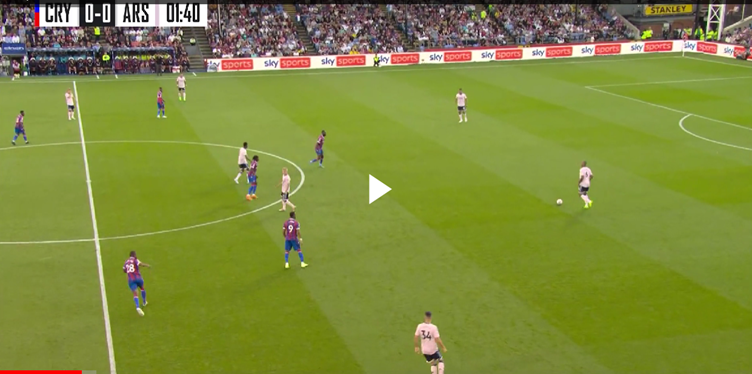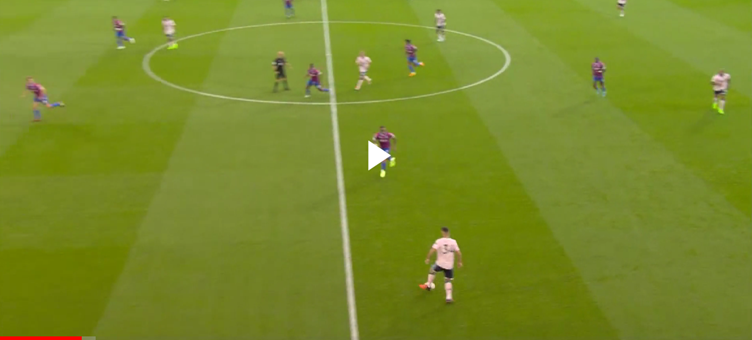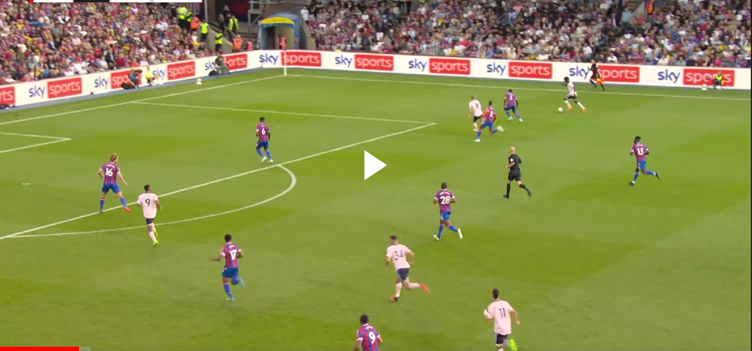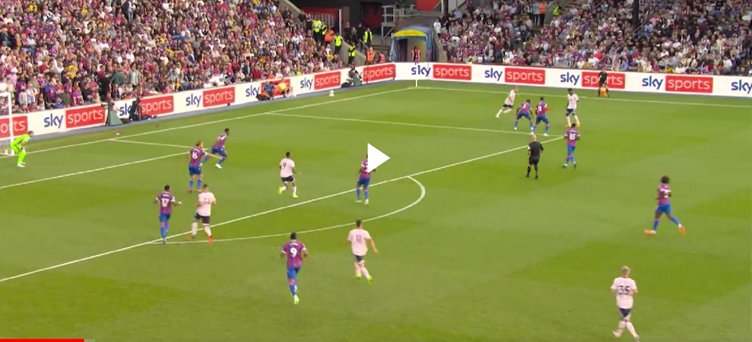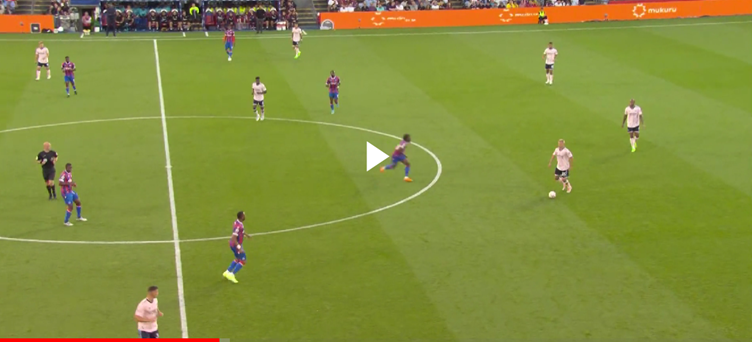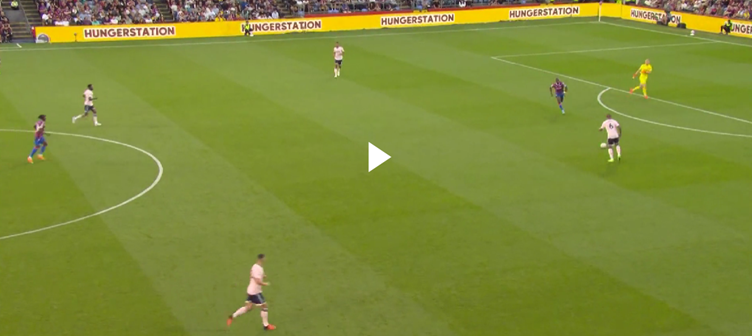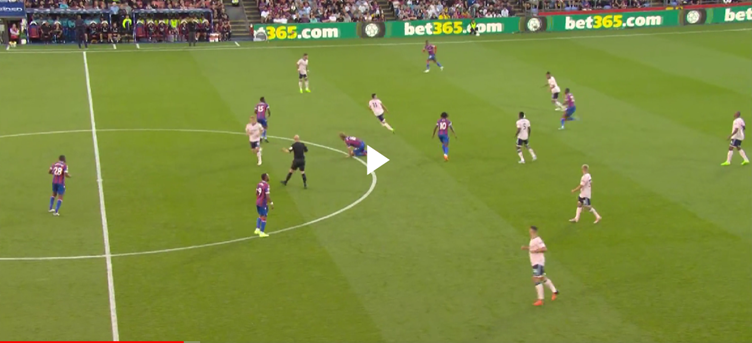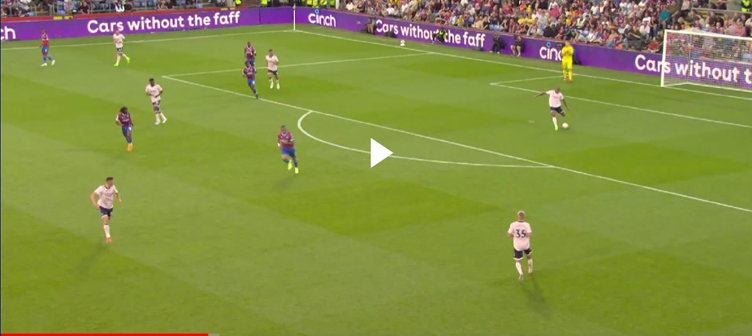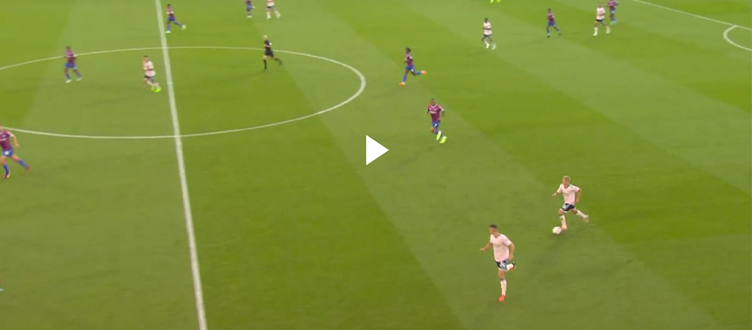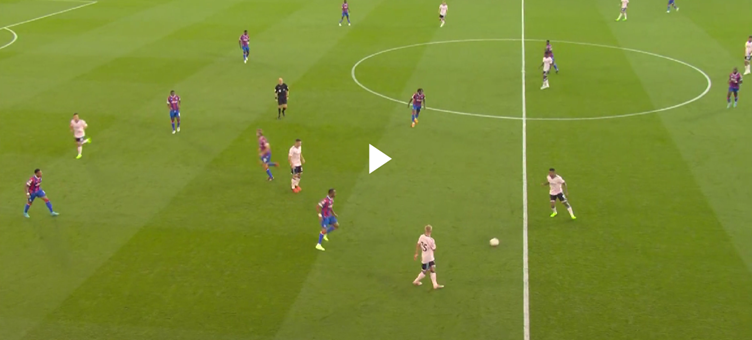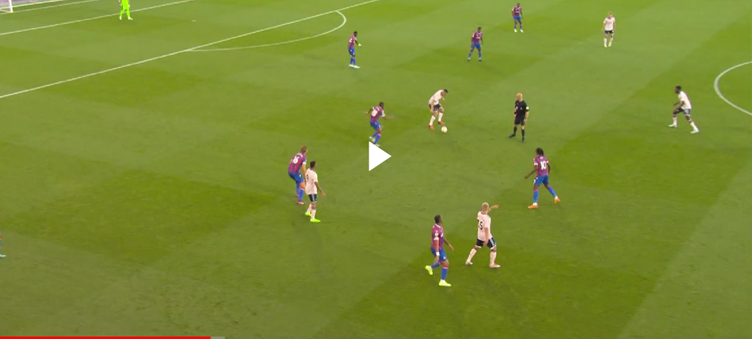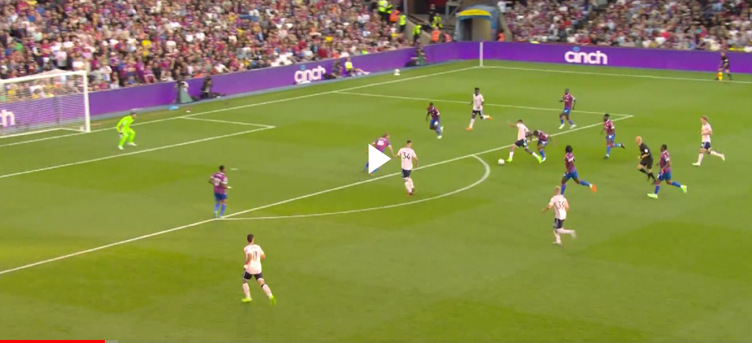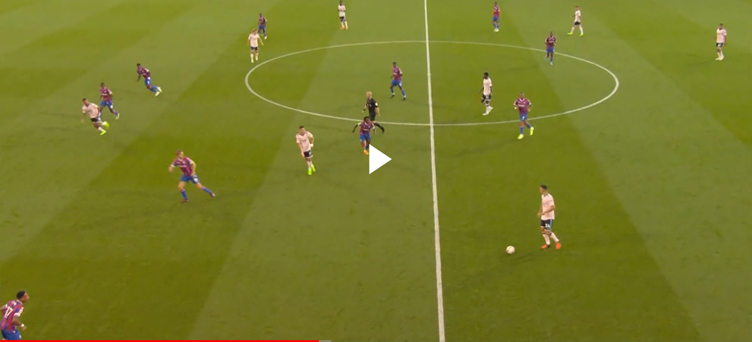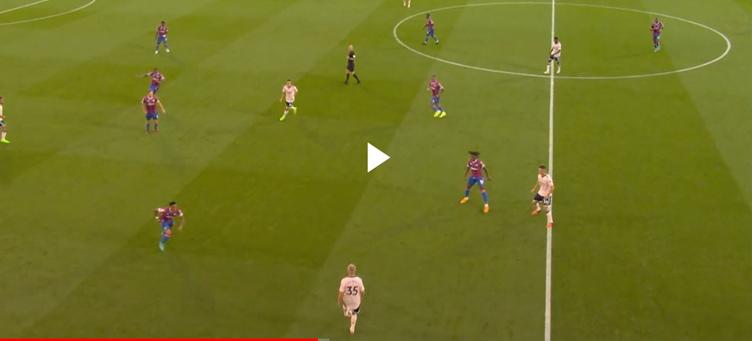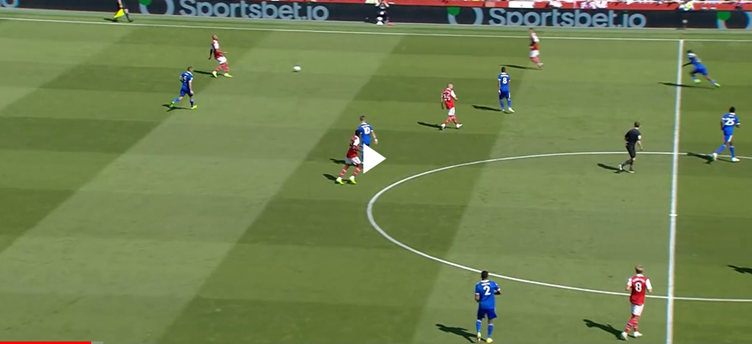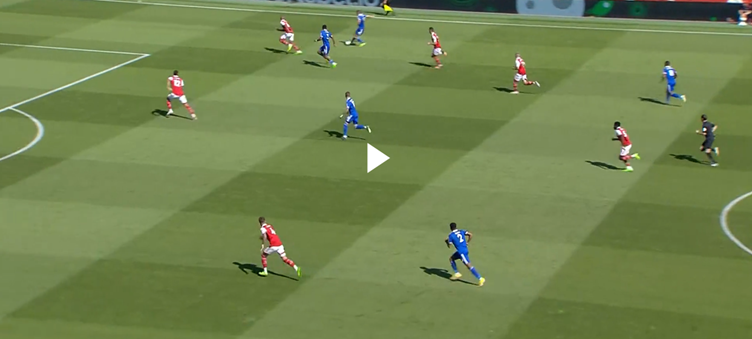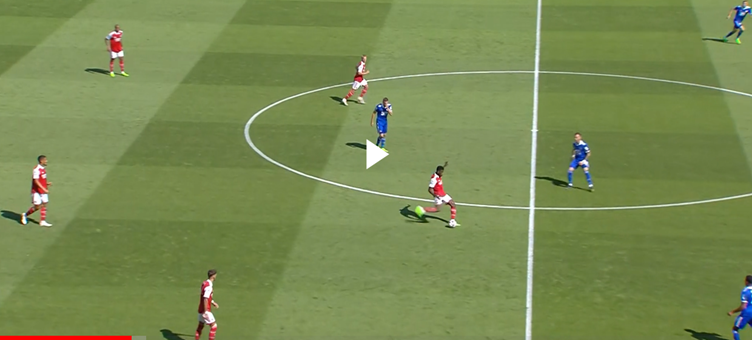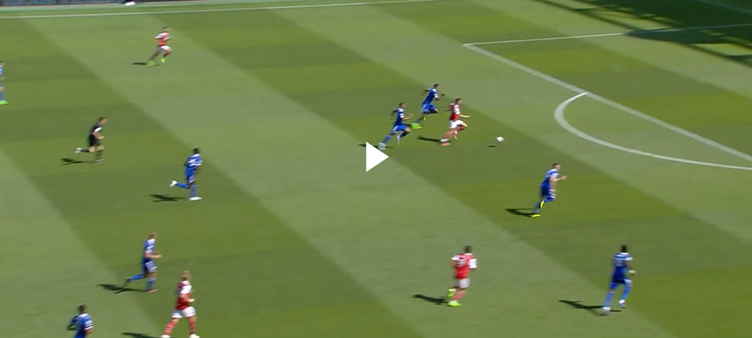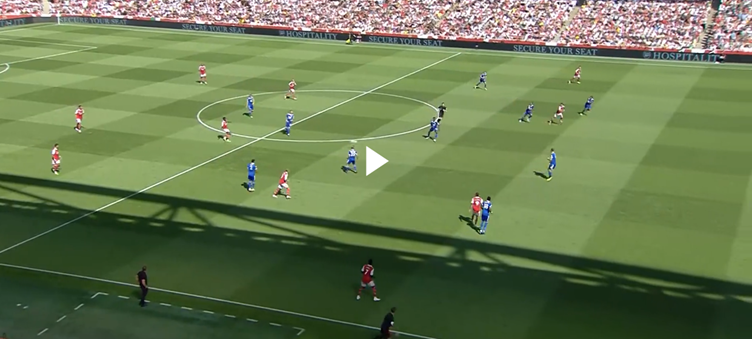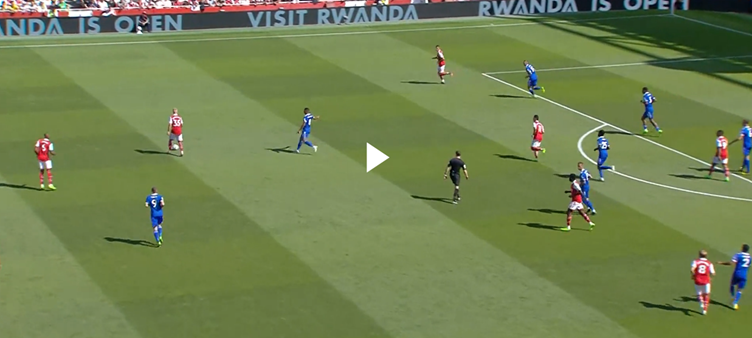One of the most interesting- and, it must be said, curious- tactical innovations we have seen under Mikel Arteta is the reinvention of Granit Xhaka. For several seasons, Xhaka was Arsenal’s deepest midfielder, the spoke of the wheel in the centre of the pitch. He would collect the ball from the centre-halves and distribute with his left foot.
When Mikel Arteta first arrived at Arsenal, we saw a slight evolution in Granit’s role. As Kieran Tierney or, when he had a spell at left-back in 2019-20, Bukayo Saka plundered forwards from left-back, Xhaka would tuck-in to fill the space as Arsenal attacked. At the beginning of last season, Granit’s role evolved again.
Thomas Partey moved to the base of the midfield to collect and distribute, with Xhaka positioned to the upper left of the midfield V. With it, his role became more attacking though his on-ball influence reduced. Xhaka is renowned for being a proud (for better and for worse) character and, I have to say, I doubted he would accept a reduced technical role.
Not a bit of it. He executed the role so quietly that it took many people several months to notice it had happened. The data below (source FBRef), extracted from Mikel Arteta’s tenure (obviously half of the 2019-20 data emanates from the tail-end of Unai Emery’s reign and Freddie Ljungberg’s short interim spell) illustrates how his role has altered. Clearly, the data from 2022-23 carries the “very small sample size” caveat.
| Passes per 90 | Long passes p90 | Shot creating actions p90 | Tackles defensive third p90 | Pressures attacking third p90 | Touches p90 | Defensive third touches p90 | Attacking third touches p90 | |
| 2019-20 | 65.7 | 12.5 | 1.46 | 0.94 | 1.53 | 74.7 | 22.2 | 10.9 |
| 2020-21 | 77.3 | 13.4 | 1.43 | 0.82 | 2.75 | 85.6 | 22.0 | 14.5 |
| 2021-22 | 59.8 | 8.38 | 3.06 | 0.73 | 3.01 | 68.2 | 13.3 | 19.3 |
| 2022-23 | 48.5 | 7.00 | 3.50 | 0.00 | 1.50 | 58.5 | 10.5 | 20.5 |
Since the beginning of 2021-22, we can see the data shifting away from actions in the defensive third- both on and off the ball- and more towards actions in the attacking third, with fewer touches overall. While two games represents a vanishingly small sample size and teams will be watching Arsenal’s first two games very keenly to see how they have changed and, crucially, how they can disrupt these new patterns, the arrival of Oleksandr Zinchenko has added texture to that area of the pitch alongside Xhaka. Let’s look at some examples from the opening two games.
Inside the opening minutes at Selhurst Park, we see Xhaka drifting to the touchline in build-up, with Zinchenko inverting into a midfield position. This has happened constantly during the first two matches, Zinchenko and Xhaka have slalomed between their respective positions, swapping lanes again and again. Another facet of Xhaka’s role is illustrated just a few seconds later as this move develops.
The ball is switched to the right and, at this point, Xhaka switches on to become an extra midfield runner into the penalty area. All the following screencaps are from the first 20 minutes of that Palace game, just look at how often Xhaka drifts towards the touchline, allowing Zinchenko to take the inside lane in the left half-space.
Here, we see Zinchenko receiving the ball where you would expect to see your left central-midfielder and Xhaka jogs over to where you would expect to see your left-back in this phase.
The two screencaps above are from the same passage of play. Xhaka is the left-back as Arsenal build with Zinchenko in-field. The below example is also interesting.
As Gabriel shovels the ball out to Zinchenko at left-back, where you would expect him, Xhaka starts to run back to the left touchline.
By the time Zinchenko has dribbled forwards a few yards, Xhaka has overlapped him in the outside lane. But look at what happens next.
Zinchenko is halted on his foray forward and comes back to Gabriel to restart the move. As he does, he and Xhaka swap back again.
The move progresses and, five seconds later, Xhaka is in the centre-forward position, making a supporting run for the forwards. It takes a lot of psychological discipline (not something Granit has always been renowned for) to keep swapping his role in this fashion as moves develop. Let’s look at how often Xhaka is in very advanced attacking positions during this same 20-minute spell.
Here he is in a central attacking position as Gabriel Jesus picks his way through the Palace defence.
As Saka moves to the by-line for a cutback, Xhaka is the figure supporting Gabriel Jesus in the area.
Zinchenko receives the ball out wide and Xhaka is sprinting ahead, making a run in the inside left position, with Martinelli central and Jesus in the right half-space. However, Xhaka’s responsibilities are not just about how Arsenal build and attack. He still has defensive responsibilities and I enjoyed the following example in that respect.
In this move, Xhaka works the ball to Zinchenko on the left, whose shot is parried by the Palace goalkeeper. The Ukrainian follows in for the rebound and look at Xhaka near the penalty spot. His head immediately turns to the left-back position to see whether he needs to run back into position and cover the space. In the end, Clyne chooses to clear the ball into touch and cover is not required.
Xhaka’s neck must be on a hinge, as he pivots his head to understand when he needs to be in the left eight position, when he needs to swap with Zinchenko, when he needs to make a support run for the strikers and when he needs to cover space vacated by the left-back to prevent the counter. However, we shouldn’t pretend that some of Xhaka’s instincts are not entirely suited to a more offensive role.
This pass simply has to be played to Gabriel Jesus. He sees the run too and has time and space to deliver the ball.
The Swiss hesitates, opts against playing it and comes inside to Zinchenko. In fairness, his view is not as elevated as the camera position. He might have thought that Jesus was offside from pitch level. Nevertheless, a more attack-minded player whose game is more naturally built on risk probably gambles on playing that pass.
The Leicester game shows us that Xhaka and Zinchenko’s interchangeability was not a one-off tactic. Here again, we see Zinchenko inverting into midfield and Xhaka collecting the ball at left-back. A minor curiosity is that Xhaka is receiving the ball with his back to goal far more often now as he often drifts from midfield and jogs back to left-back and that’s been a learning curve for a player so used to having everything in front of him.
Leicester are prepared for this too. Fofana snaps in and dispossesses Xhaka, creating a dangerous turnover and Ramsdale is forced into a crucial early save. We do see from this game that none of Xhaka’s attacking instructions have been curbed either.
Partey collects the ball in midfield, spots a clever forward run and tries to find it.
Have a look at who it is making the centre-forward run. Unfortunately, on this occasion, the pass isn’t quite perfect enough to reach Xhaka.
From this angle, we can see again that Jesus has pulled slightly over to the right channel again, opening up a space over on the left for Xhaka to attack. On this occasion, Xhaka is in the inside left lane and Martinelli on the outside. Often, it is the other way around, however. Jesus’ movement has opened up lanes of attack for other players.
Earlier in this move, Odegaard has the ball on the right and Xhaka is in the area in case the ball finds its way near the Leicester goal. Deciding there is no space to work an opportunity on that side, Odegaard shuffles the ball over to the left, where Zinchenko is in left central-midfield and Xhaka, recognising the phase of play, trots over to the left touchline to be the auxiliary left-back.
This example offers a good encapsulation of Xhaka’s various responsibilities. When the ball is on the right or the right half-spaces, he us usually making supplementary runs into the penalty area. When the play is on the left, he and Zinchenko are swapping positions and securing the left flank, allowing Martinelli to move into more central spaces and, it has to be said, that has worked nicely for Martinelli so far this season.
That Monday morning feeling after a weekend win 🫶 pic.twitter.com/K2aFgRH9hY
— Arsenal (@Arsenal) August 15, 2022
Granit bears the fruits of his attacking license with a goal in the Leicester game, it’s a close-range finish as he makes another support run into the box while the ball is on the right. Arsenal’s upcoming opponents will quickly becomes very wise to the Zinchenko and Xhaka link-up and to his more coruscating runs from midfield but, for now, the evolution in Xhaka’s game has been a surprise and a pleasant one.
💬 “It’s always good when you score and it’s always good when you can help the team.” – Granit Xhaka #ARSLEI
— Arsenal (@Arsenal) August 13, 2022
Follow me on Twitter @Stillberto– Or like my page on Facebook

